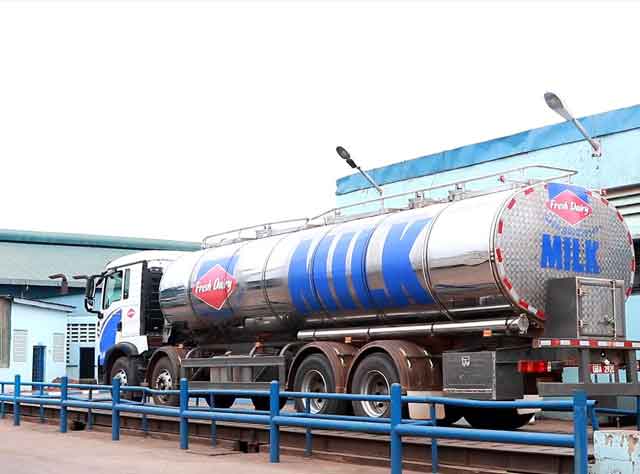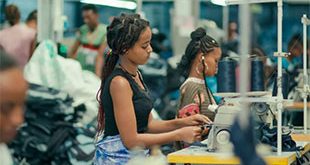
Nairobi, Kenya | THE INDEPENDENT | Uganda’s milk export figures are likely to suffer a new dent after Kenya suspended imports of powdered milk. In a notice dated March 6 to all milk importers in Kenya, the Kenya Dairy Board, KDB, said it was moving to protect local farmers from external products, as output is expected to increase soon.
“In anticipation of the long rains, the Government has stopped the importation of milk powders to cushion the industry from surplus production and low prices,” says a statement signed by Margaret Kibogy, the KDB Managing Director.
She says that the Board will no longer issue new import permits until further notice.
Though the letter does not state it, Ugandan businessmen URN talkded to thought it was targeted at imports from Uganda, which until recently, were being blocked from the Kenyan market.
It was until the commencement of the presidency of William Ruto that there was a ray of hope when he told the Association of Kenya Manufacturers that imports from Uganda should be allowed into the country and the more expensive Kenyan milk be processed for the international market.
However, there have been continuous calls from both the industry and the political leaders, on the government to ban milk from Uganda because it is cheaper and outcompetes the Kenyan products on the market.
“Kenya’s ban on importation of our products is not new, if it’s not milk, it’s eggs or grain. The ban contradicts the EAC (East African Community) trade protocols, the Common Market Protocol on free movement of goods and services, as well as the agreement that established the African Free Continental Trade Area (AfCFTA),” said Sarah Kagingo, the Vice Chairperson of Private Sector Foundation of Uganda (PSFU).
She added,” regional trade should be the cornerstone of EAC Partner States’ policies. Our countries signed the Common Market Protocol in 2009 which came into force in July 2010. However, the practice often contradicts what was ratified, and businessmen engaged in export need handholding. We (PSFU), in partnership with the Ugandan government, have held several business summits to, among others, resolve barriers to trade and travel.”
Regional milk market
Kenya is Uganda’s major milk market but the constant barriers have prompted the search for wider markets, especially in the Democratic Republic of Congo, South Sudan, Zambia, and Algeria.
The Dairy Development Authority, DDA, says that for dairy products like casein, whey protein powder, UHT milk, and milk powder, the main destinations have been United Arab Emirates, Syria, Japan, Oman, USA, Nepal, and Bangladesh.
Processed milk accounts for more than 35 percent of Uganda’s marketed milk, according to DDA. It is not known how much of the milk powder is exported to Kenya.
Recently, DDA Executive Director, Samson Akankiza said the Kenyan market was now fully open for Uganda’s dairy products, while talks are on with Algeria for the export of powdered milk.
The announcement by KDB came hardly a day after Kenya’s Deputy President, Rigathi Gachagua vowed that the government would ‘break the monopoly’ in the milk and gas sectors so as to bring the prices down.
Speaking at a church service in Nairobi on Sunday, Gachagua said that for a long the milk industry was dominated by one person who has bought off all other companies and that the same went for gas.
It is said that Mt Kenya and Brookside, which control more than half the market, are majority-owned by the Kenyatta family, while political ally Raila Odinga owns East African Spectre, the main petroleum gas supplier in Kenya.
“We need to open up that sector to competition so that farmers can get a fair deal. The days of monopoly are over, and we will not let a few individuals continue to exploit Kenyans,” Gachagua said.
He insisted that this was not a political witch-hunt by a move aimed at improving the livelihood of Kenyans.
“They wanted to continue with state capture and monopoly, but that has come to an end. We are going to open up the milk and gas industry so that we can end monopoly for the benefit of Kenyans,” Gachagua asserted, adding that one person has been buying up all the companies and selling milk at inflated prices.
In 2015, Brookside acquired Sameer Agriculture and Livestock Ltd which had earlier acquired the assets of Fresh Dairy from the Dairy Corporation of Uganda.
Effectively, Brookside became the leading milk buyer, processor, and exporter in Uganda.
Recently the cost of milk from Uganda in Kenya has risen to 55 (1,600 Uganda) shillings while Brookside milk goes for 70 shillings or about 2,000 Uganda shillings for half a litre.
Akankiza told the media that Uganda’s overall milk production increased from 2.8 billion liters in 2021 to 3.2 billion liters in 2022 and that the country remains Africa’s third largest producer after South Africa and Kenya.
According to the annual dairy performance report for the year, dairy export earnings rose to 382.2 billion shillings from 344.2 billion in the previous year.
Uganda’s position
Asked what steps PSFU would take, Kagingo said Uganda’s private sector apex body will engage the Ugandan government and KEPSA.
“At a strategic level, we partner with government in pursuit of integration of markets for the benefit of the entire private sector in the region. We will table the unfortunate development to the Ugandan government to use their good offices and diplomatic mechanisms to engage the Kenyan government. We will also engage our counterparts – KEPSA,” Kagingo said.
****
URN
 The Independent Uganda: You get the Truth we Pay the Price
The Independent Uganda: You get the Truth we Pay the Price



